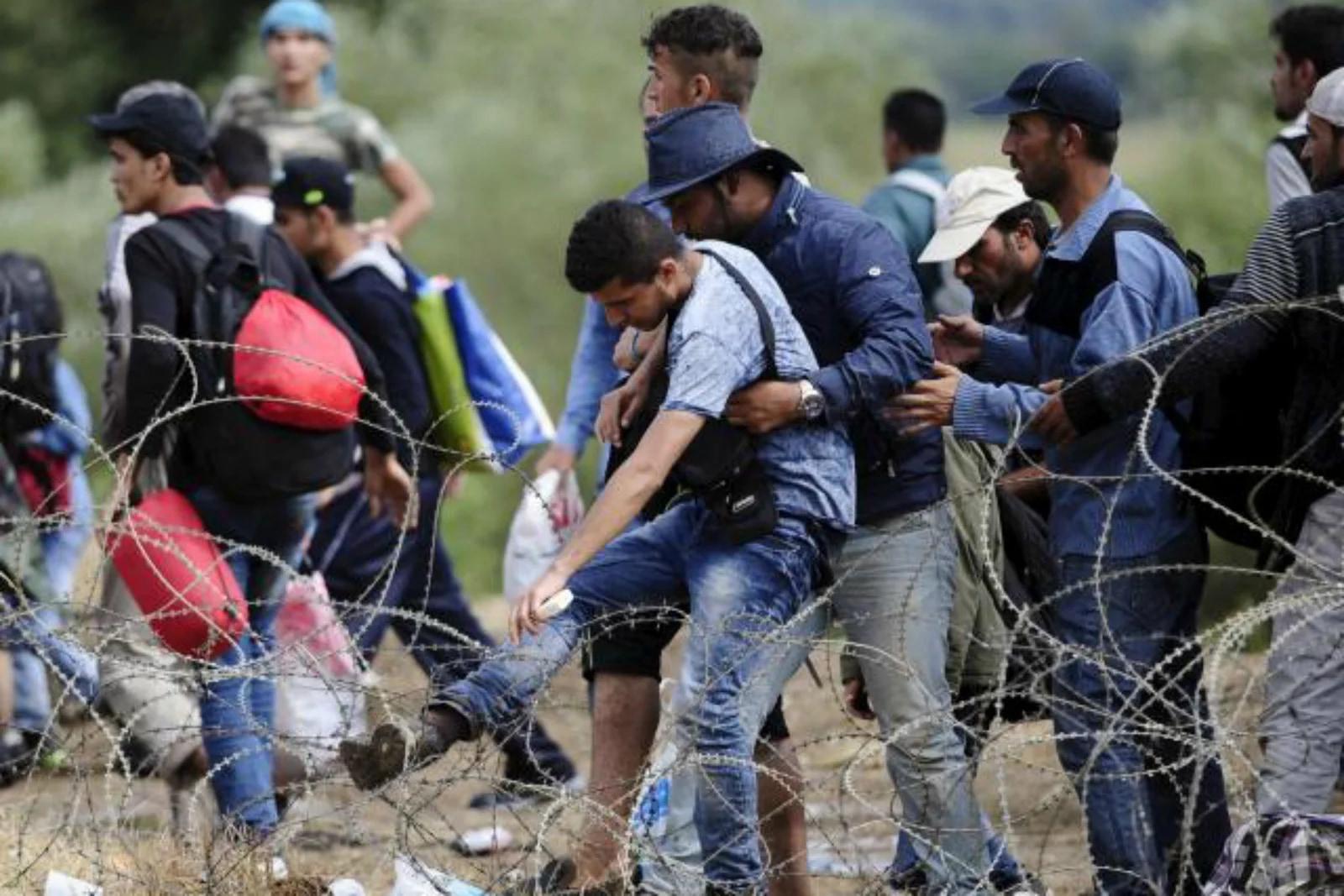Video recordings showed semi-naked Syrian migrants forced to return to Macedonia by Serbian border guards, days after the border cooperation summit between the European Union and Serbia. Human rights organizations considered this a violation of international laws, and demanded an urgent investigation, according to media reports.
The two recordings published by the Guardian, on Thursday, February 22, citing the non-governmental organization “Legis”, show a group of men stripped of their clothes, in near-freezing temperatures, forced to return from the Serbian border to Macedonia.
The Macedonian organization “Legis” said that the video recordings were filmed by a local near the village of Lujan, close to the Serbian border, and were handed over to the organization on February 10.
The organization added that the incident was the second of two offensive and humiliating responses over a 24-hour period, when more than 50 people were forced to take off their clothes or go in their underwear by the Serbian authorities, before forcing them to return to North Macedonia.
The organization indicated that its local employees were later able to speak to the men who were subjected to repulsion, who identified themselves as Syrian refugees.
Jasmin Redjepi, head of Legis, said the “disturbing and insulting” pushbacks came shortly after the EU-Serbia border cooperation summit, which was aimed at strengthening the Serbian border against people smuggling.
“These incidents happen when the European Union sets up restrictions on migration routes, and in this case, just days after the EU-Serbia Border Cooperation Summit, we saw the direct impact and consequences,” Redjepi added.
Although there have been reports of migrants being stripped naked at other European borders, Redjepi says this is the first time this has been reported on the border between Serbia and North Macedonia.
For his part, Radoš Đurović, Executive Director of the Asylum Protection Center in Serbia, said that since the beginning of this year, his employees have been receiving more testimonies about the operations of repelling and returning migrants from Serbia to North Macedonia, and commented, “We can say that it is now common practice.”
Commissioner for Human Rights at the Council of Europe Dunja Mijatović stated that “recent reports of alleged pushbacks by Serbian police officers on the border with North Macedonia, characterized by ill-treatment and degrading treatment and theft of migrants, including people trying to seek asylum, require a quick and effective investigation by state authorities.”
She added, “These events are not only worrying, but also indicate a broader and troubling trend among Council of Europe member states. These measures appear to violate the European Convention on Human Rights, which prohibits refoulement and collective expulsion, as well as other international standards that require guaranteeing real and effective access to asylum for those who seek it.”
Mijatović added that the violations that appear to be occurring on the North Macedonia border are an indicator of the mistreatment of vulnerable people at borders across Europe, describing the widespread phenomenon of illegal migrant pushbacks as a “pressing European problem.”





